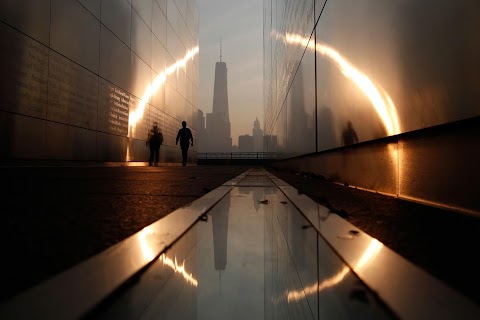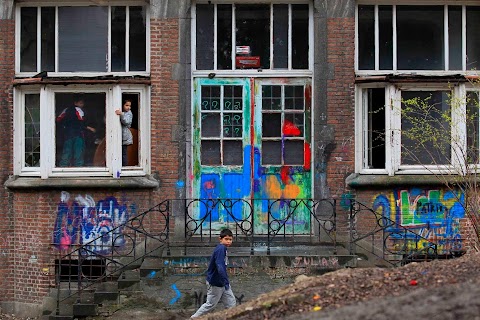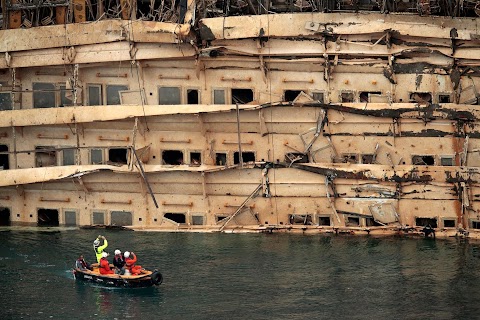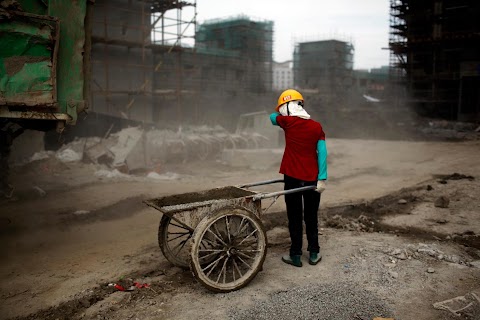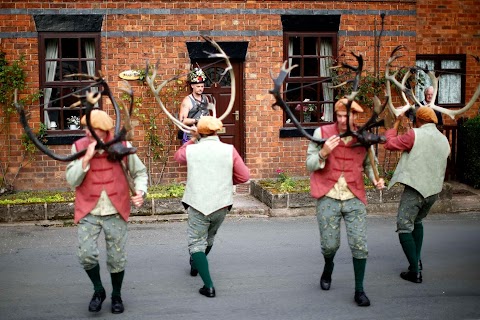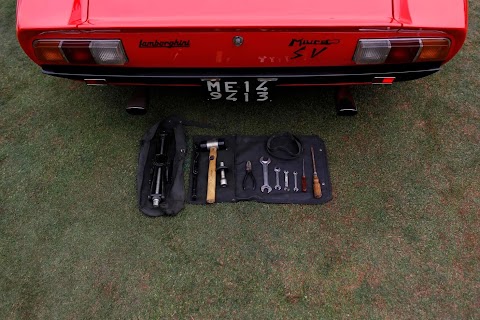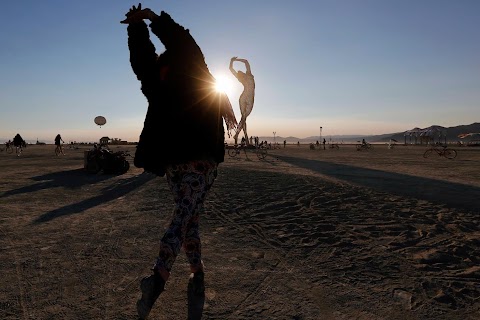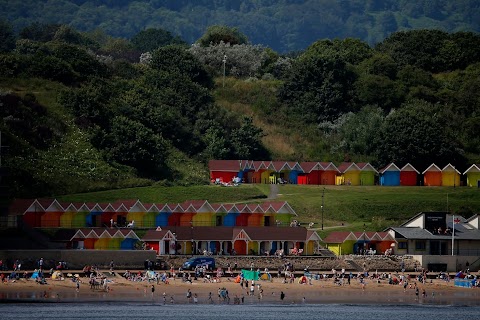
The Great British seaside
 Phil Noble
Phil Noble
Holidaymakers play on the beach beneath rows of brightly painted beach huts in the northern English seaside town of Scarborough.
British beach resorts, which flourished in the 19th century and even earlier, have long tempted tourists with arcades, fairground rides and cheeky souvenirs. Although many have declined with competition from cheap foreign travel, people still come to enjoy their amusements.

A faded sign promises "fun" in Blackpool, one of the most famous of Britain's seaside holiday towns, and also one that is suffering greatly from decline.
A recent study by the Centre for Social Justice highlighted a litany of social problems that affect the once-blooming seaside resort, from unemployment to high levels of family breakdown.
Slideshow

Sunlight glints off a giant glitterball on the promenade in Blackpool.

A boy plays with an inflatable shark on the beach.

A seagull opens its wings to take flight on the promenade.

A man lies in the bright sunlight.

People throw their hands in the air as they ride a roller coaster at the Pleasure Beach in Blackpool.

Holidaymakers spin on a fairground attraction at an amusement arcade in Towyn, north Wales.

A girls walks past a mural of a child eating an ice cream on the Blackpool promenade.

A family eats their lunch as they sit on a bench outside a fish-and-chip shop in Towyn.

The British classic of fish and chips is served in a seafront café.

A closed hotel stands on the promenade in Blackpool.

Donkeys are led down a terraced street to the beach.

An elderly couple looks in the window of a novelty joke shop in Blackpool.

A couple takes part in an afternoon tea dance at the Tower Ballroom in Blackpool.

A woman walks down a side road towards the famous Blackpool Tower, first opened at the end of the 19th century.

A fortuneteller talks on her mobile phone as she waits for customers on the promenade in Blackpool.

Lights are seen through a rain-soaked windscreen on the promenade.
"These resorts... captivate the young with their bright lights, cuddly toys and ice cream and evoke a sense of yesterday."
I can remember vividly trailing as a child after several suitcases pulled by my parents or trying to squeeze into my uncle's luggage-laden car as my brother and I began the journey to our annual family holiday by the beach.
This was the late 1970s or early 1980s, and foreign holidays were out of the reach of the Noble household at that point, so the bright lights of a British resort such as Llandudno or Blackpool was our usual destination.
Over the years these seaside resorts and others like them have undergone a roller coaster ride (excuse the pun), seemingly lurching from popularity to poverty and back again.
Originally brought to a mass audience by the expansion of the railway network, these traditional resorts with beaches and amusements like fun fairs and donkey rides, were in easy reach of the factory workers from the nearby mill towns and cities, offering them an affordable break with a chance of some fresh air away from their normal industrial landscape.
The advent of the cheap foreign package holiday and the subsequent rise of low-cost airlines, aligned with the often unpredictable British weather, saw people vote with their feet and head off to the Spanish Costas in search of guaranteed sun.
Yet these coastal towns still manage to pull in holidaymakers. Gone perhaps are the massed ranks of cloth-capped factory workers that packed every inch of sand in the 1950s, replaced in part by hen and stag (bachelor and bachelorette) parties drawn in by cheap accommodation, alcohol and the promise of a good weekend, as well as families opting for a cheaper holiday in a bed and breakfast or in one of the hundreds of static caravan parks that cling to the coastline like barnacles to a rock.
Local councils are working hard to enhance the feel of these towns, improving the promenade and modernising the town centres, but in a lot of ways they still feel the same as they did when I was hassling my parents for an ice cream.
The smell of candyfloss and fast food coming from the stalls on the front, mixed with the cacophony of electronic sounds and music aimed at enticing you inside the rows of amusement arcades is still just as I remember, except that now, through my ageing eyes, it doesn’t seem quite as appealing as it did aged seven.
And this perhaps is both the problem and the appeal of these resorts. They captivate the young with their bright lights, cuddly toys and ice cream and evoke a sense of yesterday in those of a certain age (hence the constant stream of coach parties full of over 60s), but if you take a step back and look again, the bright lights are perhaps dimmer then they appear and the paintwork in need of another coat.


